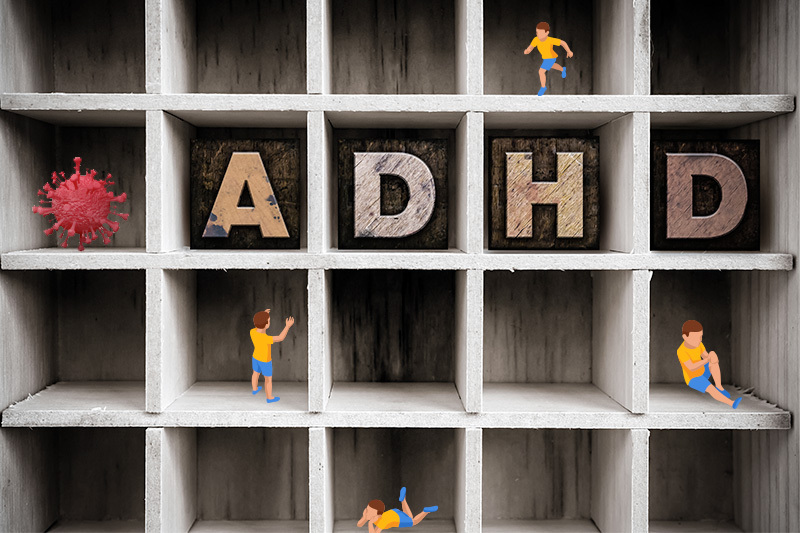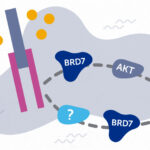Caring for pediatric ADHD patients through telehealth

· In the current health crisis, online visits should be used to monitor current patients and make new diagnoses.
· Providers should guide families to resources for at-home behavioral modification techniques.
· Telehealth office visits are likely to remain after the current crisis subsides.
It comes as no surprise to the pediatric neurology community at Boston Children’s Hospital that many children with neurodevelopment disorders, which include attention-deficit hyperactivity disorder (ADHD), are struggling more during the COVID-19 pandemic. And the health crisis has forced everyone involved in health care to think differently.
“It has made us rethink what actually goes on during a patient visit,” says David Urion, MD, director of behavioral neurology clinics and programs at Boston Children’s.

For children with ADHD and their families, online or telehealth video conferencing has become an essential tool for today’s ‘office’ visit. To help guide care delivery, our clinicians are widely embracing and expanding on recommendations for assessing and managing patients with ADHD proposed by the European ADHD Guidelines Group (EAGG), recently published in The Lancet.
As the new normal may be with us for a while, “It is worth spending the time getting this right now so we can provide the support all of our families need, whether for ADHD, other neurological disorders, or any medical disorder, ” says Urion.
Online video conferencing
Given the requirement for physical distancing, all relevant service provision should continue via telephone or appropriate online video technology, in line with current recommendations for the use of telepsychiatry.”
– EAGG
Since the pandemic started, the neurology team at Boston Children’s pivoted quickly to online video conferencing, averaging more than 4,000 online patient visits each month, though not all of them for ADHD.
“We are able to do the vast amount of the ongoing care of our patients with ADHD remotely, both for managing current patients and for making an initial ADHD diagnosis,” says Urion.
Structured questionnaires from parents and teachers capturing historical information provide the bedrock of information needed to make an initial ADHD diagnosis. “We get all of the information we need from the patient and their parents from video visits and the questionnaires to make that diagnosis,” he adds. “And we are working with teachers who are also in quarantine and have been quite forthcoming in terms of giving us information as they recollect the student in class.”
A literal window into the home
In many cases, online visits offer a wider perspective on the child’s home life. “The great thing about virtual visits is that you are actually in people’s homes,” Urion says. “Everyone is on their own turf, instead of in the office, and people are much more forthcoming.” He finds that the children especially are more comfortable in their home environment.
“We are getting adequate information from home monitoring, which I think is teaching us a lot moving ahead in a post-COVID-19 environment,” adds Urion.
Start medication when necessary
Individuals with ADHD should, if clinically indicated and as recommended in standard national guidelines, be offered the opportunity to start on a pharmacological treatment after completion of the initial assessment or, if already on medication, continue with this as usual.”
– EAGG
The team at Boston Children’s initiates drug treatment for children in whom the ADHD diagnosis is being made virtually. Certain information, like the child’s general physical health, height, weight, a recent blood pressure, and pulse is gained from the pediatrician.
“With virtual visits or a simple telephone call, we can easily check in for routine medication monitoring, as well as reviewing the child’s progress after a medication change,” he adds.
Do not freelance medications
Parents of children with ADHD and adolescents or adults with ADHD should avoid increasing doses or adding doses (beyond those prescribed) to manage a crisis or stress related to confinement.”
– EAGG
In keeping with these guidelines, Urion and colleagues encourage families not to freelance medication dosing without discussing any drug changes with the prescribing clinician. “We certainly talk with families about what they are seeing in the course of the day and make alterations in drug type, dosing, and formulation based on what now is going on at home,” he says.
For some children, shorter-acting medicines may be best because school time is limited. For others, longer-acting drugs may be beneficial because of the real challenges of isolation and quarantine and limited mobility outside the home.
Limited cardiac assessments
Routine cardiovascular clinical examination and face-to-face monitoring for individuals with ADHD without any cardiovascular risk factors could be postponed until routine face-to-face visits are reinstated.”
– EAGG
Heart monitoring for ADHD patients taking certain medications is recommended out of concern for potential cardiac events from these drugs. “We do this very sparingly anyway,” says Urion, adding that heart evaluations should still be done in patients with known heart conditions.
Creative solutions for psychological therapies
For families with children with ADHD, the EAGG recommends the use of behavioral parenting strategies because they improve parenting and have beneficial effects in reducing oppositional defiant and disruptive behavior, which is common in ADHD.”
– EAGG
One of the most significant issues has been delivery of cognitive behavioral therapy or other psychological therapies, which are very useful for children with ADHD. But providing these treatments virtually can be particularly challenging.
“Our psychologists and neuropsychologists are working with families to provide very structured behavioral techniques for their children who are struggling with behavioral issues,” says Urion. In addition, they are teaching parents behavioral modification techniques that teachers use in the classroom environment to assist with at-home learning.
Learn more about virtual visits at Boston Children’s Hospital.
Related Posts :
-

Medical care for youth with neurodevelopmental disabilities: A call for change
According to national data, one in six children has a neurodevelopmental disability (NDD) such as autism, intellectual disability, or ADHD. ...
-

BRD7 research points to alternative insulin signaling pathway
Bromodomain-containing protein 7 (BRD7) was initially identified as a tumor suppressor, but further research has shown it has a broader role ...
-

Exploring brain operations: Making decisions, snapping to attention, and forming memories
How do our brains snap to attention and orient us to the outside world — like when we’re sound asleep ...
-

When diagnosis is just the first step: The Brain Gene Registry
Through advances in genetic sequencing, many children with rare, unidentified neurodevelopmental disorders are finally having their mysteries solved. But are ...





